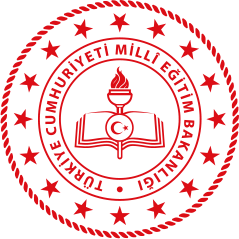ASSESSMENT POLICY
ANKARA TÜRK TELEKOM SOCIAL SCIENCES HIGH SCHOOL
ASSESSMENT POLICY
Assessment and evaluation can be seen as a quality control process for all institutions. Measurement and evaluation activities at every stage of the educational process must be carried out within a particular program. Thus, quality control process is made more functional. Development and progress can be achieved. Making accurate and reliable assessment, planning the process, providing feedback and guidance should be attached importance.
ASSESSMENT GUIDELINES
Each set of measurements made towards evaluation and proper diagnosis are important. Correct diagnosis allows you to get the right plan and the right precautions.
Evaluation is carried out for the following purposes:
• To uncover and to raise the potential student achievement,
• To increase the quality of education and thus to raise the total quality of the school,
• To provide more scientific educational structure,
• To assess the success with more objective means,
• To measure students' performance in the most reliable and objective way, in line with the objectives of the training program,
• To identify learning difficulties and shortcomings of the students, make comments and suggestions to avoid them,
• To ensure monitoring of developments in students' achievements throughout the school year.
In order to achieve this goal, quality of the evaluation system should be reliable and accurate.
ASSESSMENT INSTRUMENTS
Assessment instruments include tests, examinations, extended practical work, projects, portfolios and oral work, some carried out over a prolonged period and sometimes marked by the students' teacher. There are two kinds assessment used in education; formative assessment and summative assessment. (IB, 2004)
Summative assessment
Aims to determine the level of achievement of a student generally at the end of a course of study. For the IB Diploma Programme the summative assessment is the final exam done by IB externally, that is why for the school the most important part of the assessment is Formative assessment.
Formative assessment
Refers to frequent, interactive assessments of student progress and understanding to identify learning needs and adjust teaching appropriately. (Looney, 2005, p. 21)
Aims to identify the learning needs of students and forming part of the learning process.
Formative assessment is also defined as assessment for learning while summative assessment is defined as assessment of learning.
Additionally, in assessment process, there are two important concepts to be considered: reliability and validity. Validity is to assess the knowledge with an appropriate tool, whereas reliability is the consistency of consequent measurements for the same skill in different times. That is why, when assessment is designed, teachers should design assessment tools appropriate to learning outcomes.
The assessment system in our school:
• Evaluation results provide information about students' performance and the subjects which are not learned. School administration use these results to make planning, while the teachers use them for the closing process of deficiencies.
• Reviewing the results, parents support obvious strengths of students due to their project and task performances and learn about the issues that are missing.
• Evaluation criteria for students, teachers and parents are announced in advance. So, the students know what course will be evaluated according to what behaviour and they can see their weaknesses or strengths.
• Students' learning is controlled in targeted process.
• Provides information about the student's strengths and weaknesses. The teachers recognize the students in the evaluation process.
• Provides information to the students about their behaviour and assist them to improve.
• Provides feedback to teachers and the school administration in making plans for the future.
•Provides better quality of education and training services.
• Teachers question their competence, address their shortcomings and improve the effectiveness of the guidance in the classroom.
How We Evaluate:
Assessment and evaluation is done using various methods and techniques in education. The Ministry of Education regulates the examinations held across the country within the education system to apply the classical measurement methods.
These methods include:
Written exams with long replies
Written exams with short answers
Multiple Choice Tests
Completion (Gap Filling) Questions
True-False Questions
Matching questions
Questions and Answers
Classical measurement and evaluation techniques are indispensable in the schools. These techniques also have consolidation property as the teaching method.
Implemented new curriculum have come up with the innovations in assessment techniques. In our institution, assessment and evaluation criteria are prepared in cooperation with our teachers and used in our classrooms.
What we evaluate:
• Student Portfolios
• Performance Tasks
• Projects
• Classroom activities
Grading:
The grading process is carried out in accordance with the Ministry of Education regulations. Given notes are entered into the e-school system. There is a password for each student and parents in the system. Parents, students and teachers can access all the information entering the system.

